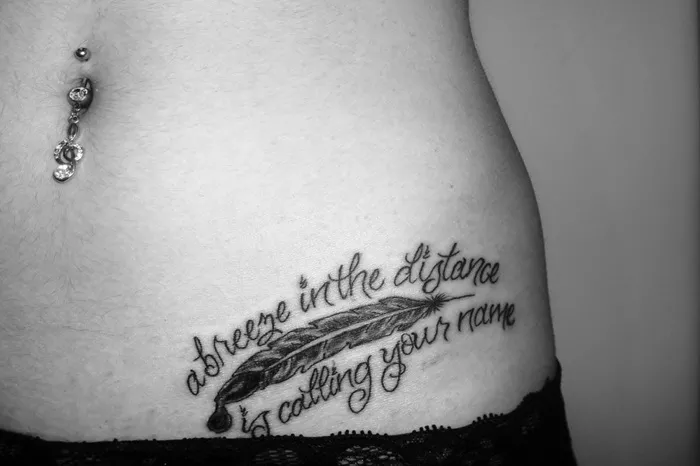In today’s diverse and evolving society, the question of whether it’s acceptable for Christians to have tattoos is one that sparks a range of opinions and interpretations. While some adhere strictly to biblical admonitions against body modification, others see tattoos as a form of self-expression and personal adornment. Navigating this topic requires careful consideration of biblical teachings, cultural contexts, and individual convictions. Let’s delve into the various perspectives surrounding tattoos within the Christian faith.
Biblical Perspective:
Leviticus 19:28 stands as a cornerstone for the debate on tattoos within Christianity: “Do not cut your bodies for the dead, and do not mark your skin with tattoos. I am the Lord.” At first glance, this verse appears unequivocal in its prohibition of tattoos. However, understanding the historical and cultural context sheds light on its intended meaning.
In ancient times, tattoos were often associated with pagan religious rituals and idol worship. The prohibition in Leviticus was likely aimed at distancing the Israelites from these practices, emphasizing their commitment to Yahweh alone. Therefore, the commandment against tattoos must be interpreted within the broader context of rejecting pagan customs rather than a blanket condemnation of body art.
Application Today:
Despite the clarity of Leviticus 19:28, its application in modern Christian life is subject to interpretation. While some believers view tattoos as a form of self-mutilation and avoid them altogether, others perceive them as a legitimate form of artistic expression and cultural engagement.
For those who embrace tattoos, the decision often hinges on personal conviction and interpretation of biblical teachings. They may see tattoos as a means of celebrating God’s creativity and expressing aspects of their faith, identity, or life experiences. Others may simply appreciate tattoos as aesthetically pleasing adornments, devoid of any spiritual significance.
Disputable Matters:
Romans 14 provides valuable insight into navigating disputable matters within the Christian community. This chapter addresses nonessential issues that are not central to salvation but may vary in importance among believers.
When it comes to tattoos, Christians find themselves in a realm of disputable matters. While the core tenets of faith remain unchanged, attitudes towards body art may differ widely among individuals and cultural contexts. In such instances, it’s crucial to approach the topic with humility, recognizing that personal convictions may vary.
Personal Conviction:
Central to the Christian faith is the principle of personal accountability before God. Romans 14:12 reminds believers that “each of us will give an account of ourselves to God.” This underscores the importance of discerning one’s personal convictions regarding tattoos and other disputable matters.
For some Christians, tattoos may conflict with their understanding of honoring God with their bodies, leading them to abstain from body art. Others may discern that tattoos hold no spiritual significance and are, therefore, permissible within the bounds of their faith. Ultimately, each believer must prayerfully consider their own convictions and motivations in light of Scripture.
Motives:
Beyond the mere presence of tattoos, Christians are called to examine their motives and intentions behind body art. While tattoos can serve as meaningful symbols or expressions of faith, they can also become sources of pride, vanity, or worldly conformity if not approached with caution.
As followers of Christ, the primary aim should be to glorify God in all aspects of life, including decisions about body art. This entails aligning motives with biblical principles such as humility, love for others, and the pursuit of righteousness. Before getting a tattoo, believers are encouraged to examine their hearts and ensure that their actions ultimately point others towards Christ rather than drawing attention solely to themselves.
Practical Considerations:
While the debate over tattoos may continue within Christian circles, practical considerations also come into play. Beyond personal convictions, believers must navigate how tattoos impact their witness, relationships within the church, and engagement with broader society.
Gospel-Centered Conversations:
One practical benefit of tattoos is their potential to serve as conversation starters for sharing the gospel. Tattoos often carry personal stories, beliefs, or values, providing natural opportunities to engage others in meaningful dialogue about faith. By approaching tattooed individuals with curiosity, respect, and genuine interest, Christians can build bridges for gospel-centered conversations and relational outreach.
Unity:
At the heart of Christian community lies the call to unity amidst diversity. Romans 14 emphasizes the importance of maintaining fellowship and avoiding judgment over nonessential matters. While disagreements may arise over tattoos and other disputable issues, believers are called to prioritize love, mutual respect, and the shared pursuit of Christ-likeness.
Verse to Remember:
As Christians grapple with the complexities of tattoos and other disputable matters, Romans 14:23 serves as a poignant reminder: “…everything that does not come from faith is sin.” Whether choosing to embrace tattoos or abstain from them, believers are urged to act in accordance with their convictions, trusting in God’s guidance and seeking His glory above all else.
In conclusion, the question of whether Christians can have tattoos is not one with a definitive answer applicable to all believers. Instead, it calls for discernment, humility, and a commitment to biblical principles within the context of individual convictions and cultural considerations. As Christians navigate this issue, may they be guided by love, grace, and a steadfast devotion to honoring God in all aspects of life, including decisions about body art.

